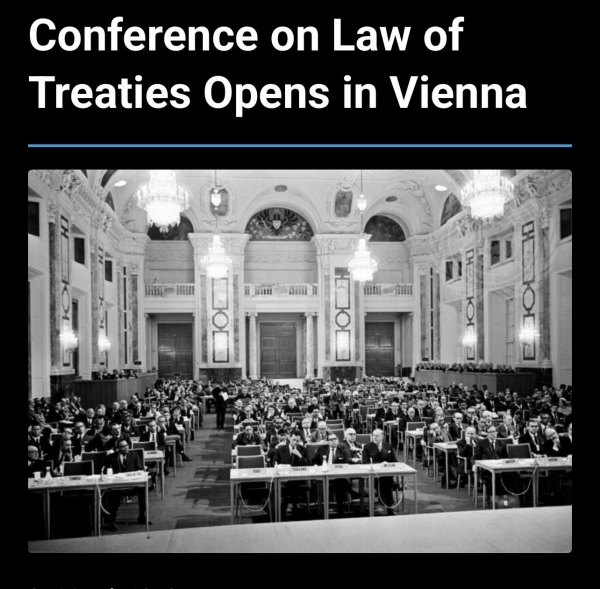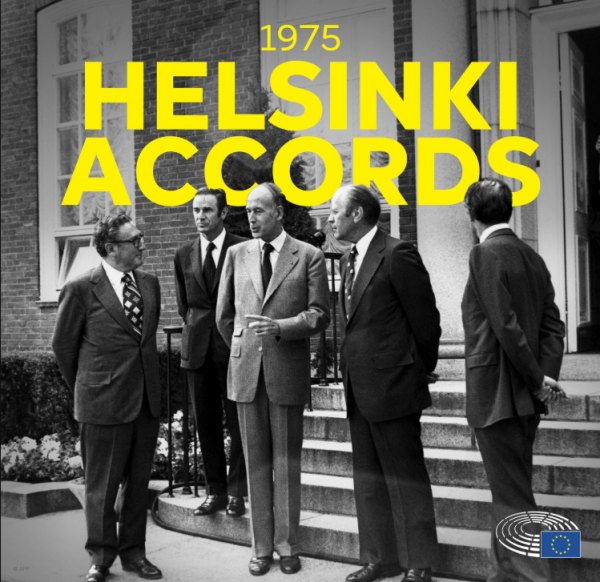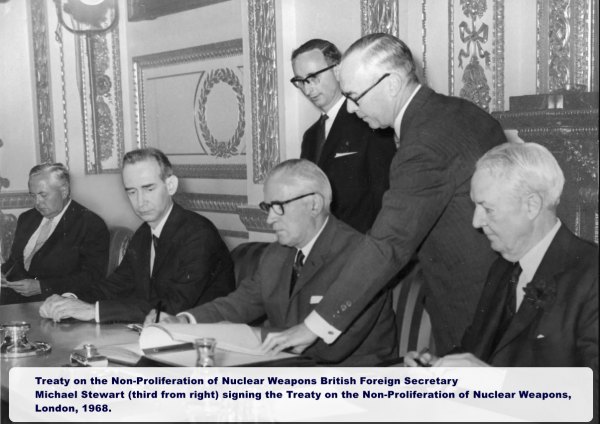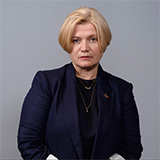A PEACE PLAN FOR UKRAINE AND THE WORLD
'Ukraine has always sought to be free',
Voltaire, 'The History of Charles XII, King of Sweden', published by Christophe Revis, Basel, 1730
'There can be no security of Europe without the security of Ukraine',
Josep Borrell, Head of European Diplomacy, 5.01.2022.
The main options for a peace plan to end this war and, without exaggeration, to save the modern world are as follows.
Plan 'A' which can be implemented if all the main centres of influence on the Planet understand their collective responsibility for its security. They shall recognize the mistakes that have been made, the underestimation of Ukraine's factor in Europe and geopolitics, and the need to return to the implementation of existing norms of international law to ensure further peaceful and evolutionary development of the World. Even before the start of Russia's large-scale aggression against Ukraine on 24 February 24, it could have saved world peace. The main theses of this plan were first published in the newspaper Ukrainska Pravda on 29 December 2021 under the slogan: "Without Ukraine's security, there is no security for Europe" (https://sylaichest.org/ihor-smeshko-europe-cannot-be-secure-without-ukraines-security/). There were still 2 months left before the full-scale invasion.
The first point of the plan 'A' is the confirmation and practical implementation of Russia's security guarantees to Ukraine, in accordance with the Budapest Memorandum of 1994 and the withdrawal of Russian troops from Ukraine beyond its borders in 1991.
It is necessary to fulfil this clause:
1. To confirm the viability and non-destruction of the Vienna Convention on the Law of Treaties of 1969.
If this is not done, then on the basis of what source of international law can any new treaty be signed? And where are the guarantees of the implementation of the new treaty if the current international treaty is considered non-binding? What is the point of signing any new treaties with Russia if it does not fulfil the existing ones, previously signed and valid?

2. To confirm the viability and non-destruction of the 1975 Helsinki Accords. Having violated the Budapest Memorandum and Ukraine's borders, Russia has launched the 'domino principle' of the possibility of destroying all borders in Europe. These borders were established after the end of World War II, and their inviolability was confirmed in Helsinki in 1975. Failure to return Ukraine to its legally recognised borders is tantamount to recognising the Helsinki Accords as a 'house of cards', which can now be destroyed by any country in relation to its neighbour – if only it has the power to do so.

If Russia believes that the collapse of the USSR freed it from the Helsinki Accords, it is worth reminding: The Soviet empire dissolved itself. Russia itself assumed its obligations as its successor. As a result, it took the USSR's seat on the UN Security Council in violation of the relevant procedures under the UN Charter. If Russia renounces the obligations of the USSR under the Helsinki Accords, this entitles the UN to review its membership in the Security Council in accordance with the UN Charter.
3. To confirm the viability and non-destruction of the 1968 Treaty on the Non-Proliferation of Nuclear Weapons (NPT) . If the Budapest Memorandum is not fulfilled and real security guarantees are not provided to Ukraine, it has the right to withdraw from this treaty. Both treaties are interrelated for Ukraine (full name of the Budapest Memorandum is the Memorandum on Security Assurances in connection with Ukraine's accession to the Treaty on the Non-Proliferation of Nuclear Weapons).

By the way, even the ancient Anglo-Saxon law recognises that each party to a contract that has provided services is entitled to fair compensation. Ukraine's withdrawal from this agreement is de facto its death. No country in the world will ever again exchange possession or the possibility of possessing nuclear weapons in exchange for any security guarantees and accession to this treaty.
Ukraine has already rendered an unprecedented service to the world in strengthening its security. In particular, it has eliminated the threat of destruction of the United States by the world's third largest arsenal of strategic nuclear weapons. For US taxpayers, the cost of this service since then has been many trillions of US dollars saved on defence (according to incomplete and very modest estimates).
The reference by some politicians to different translations of the English words 'guarantees' and 'assurances' ('assurances of support' is how they translate it, although the title of the Memorandum says 'on security assurances') is disingenuous from the point of view of international law. According to the Vienna Convention, all copies of the Budapest Memorandum have the same legal force. The title of the Ukrainian copy uses the word 'guarantees' (the Russian copy uses the word 'guarantees'), and these words have no double meaning. Those disingenuous politicians who refer to different translations should be reminded of the meaning of the English words: 'Dignity', 'Morality', and 'Honour'.
The second point of the plan 'A' is to supplement the Budapest Memorandum (BM) with an additional Agreement 'On the Mechanism for Providing Real Security Assurances to Ukraine in accordance with the Budapest Memorandum of 1994'.
This Agreement should formulate a new mechanism for providing real security guarantees to Ukraine in the event of new aggression against it.
The need for this is dictated by the following:
1. The text of the Budapest Memorandum, as practice has proved, leaves gaps that, due to casuistry, give cunning politicians the opportunity to evade the fulfilment of the security guarantees to Ukraine by their states. Let us recall: in exchange for Ukraine's unique contribution to nuclear disarmament and global security (already made by Ukraine), the nuclear weapon states guaranteed Ukraine its independence, sovereignty and existing borders. The price of unfulfilled guarantees is 20 per cent of the occupied territory of Ukraine, hundreds of thousands of dead, the destruction of the infrastructure and economy of the largest country in Europe, the threat of World War III and the collapse of the international law system that has ensured peace in Europe since 1945. These flaws in the text of the Memorandum should be corrected by supplementing it.
By the way, from 1992 to 1996, I served as Ukraine's military, naval, air and defence attaché to the United States and participated in negotiations on Ukraine's nuclear disarmament. I can attest that during these negotiations, both in Kyiv and Washington, no US representative ever said that Ukraine was not receiving real guarantees of its security, but only 'assurances' of them.
The presidents of Ukraine and its top military and political leadership of those times believed in providing Ukraine with real security guarantees in exchange for the third nuclear arsenal in the world. The security guarantees of the Budapest Memorandum repeat word for word the security guarantees promised to Ukraine in the Trilateral Statement signed on 14 January 1994 in Moscow by the Presidents of Ukraine, the United States and Russia: "Presidents Clinton and Yeltsin have informed President Kravchuk that the United States and Russia are prepared to provide security assurances to Ukraine. In particular, once the START I Treaty enters into force and Ukraine becomes a non-nuclear-weapon state party to the Nuclear Non-Proliferation Treaty (NPT)...".
At a time when the United States, together with Russia, was pressuring Ukraine to get rid of nuclear weapons, 'security assurances' were interpreted as 'security guarantees.' None of the US officials told the Ukrainian representatives that these were only formal 'assurances of support' or anything other than full-fledged 'security guarantees.' Couldn't these guarantees have suddenly turned into mere 'assurances of support' since 02 June 1996, when Ukraine finally got rid of its nuclear weapons? Is this fair 'compensation' in exchange for the strengthening of US security, at the expense of Ukraine's security, worth trillions of dollars?
Can a superpower that aspires to be great and claims to be a decent planetary policeman sign documents of such importance and behave like a petty thief at a village fair? For a great power and great leaders, their own reputation and honour dictate the rules of conduct. In which the essence of such a document, and not the casuistry within its wording, is the most important factor. The greatness of a state, as well as of a person, is first and foremost a good name, moral authority and honour. After such behaviour of the nuclear powers, who and when will lose their own nuclear weapons or the possibility of obtaining them in the future?
It should also be noted that in December 2013, during the visit of Ukrainian President Yanukovych to China, a joint statement was signed. In this statement, China reaffirmed its security guarantees to Ukraine in the event of nuclear aggression against it or the threat of such aggression. This event was widely covered in the Chinese media, including the newspaper Rénmín Rìbào (The People's Daily). After the start of Russian aggression against Ukraine in 2014, the article was removed from this newspaper. In June 2023, during a visit to Kyiv by Japanese Prime Minister Fumio Kishida, the latter said that China should be a 'nuclear umbrella' for Ukraine. Obviously, he was referring to China's official international commitments to Ukraine. ['Under New Scrutiny China's Nuclear Pledge to Ukraine', James T. Areddy, March, 11, 2022, WSJ].
2. The experience of Russia's violation of the Budapest Memorandum and incomplete implementation of its provisions by other signatories requires that the additional agreement to it formulate a step-by-step and time-bound mechanism for the implementation of such guarantees, which would make it impossible to carry out new aggression against Ukraine. This detailed mechanism can be provided both by the nuclear-weapon states – signatories to the Memorandum, if they agree, and by new countries or unions of countries that express a desire, on the principle of reciprocity with Ukraine, to strengthen their common collective security in the future.
3. A radical solution to this issue would be to join NATO to such an agreement as a new, collective guarantor of Ukraine's security in the event of a new aggression against it.. In exchange for Ukraine's commitment, which currently has the most experienced and capable army in Europe, to become a guarantor of security for the Alliance's member states in the event of aggression against them.
In fact, this is a separate alliance between Ukraine and NATO, without the deployment of the infrastructure and troops of NATO member states on its territory, which Russia feared and called one of the reasons for its aggression against Ukraine.
The third point of the plan 'A' should be for the coalition of democratic countries of the world to provide assistance to Ukraine in restoring its destroyed territories and economy, and to help it quickly restore democratic institutions of power and accept it into the European Union. This should be accompanied by the formulation of an appropriate strategy for such assistance, similar to 'the Marshall Plan' for Ukraine, and the resolution of the issue of compensation by Russia for the damage it caused to Ukraine during the war.
In general, such a plan is a chance for Russia to move away from the abyss of closing the European civilizational and cultural development path and remove the threat of its disintegration. The alternative for Russia is to return to the Asian path of development of the former Moscovia before the fifteenth century, with dependence now not on the Golden Horde but on China.
Plan 'B' will have to be implemented in case the Alliance refuses to join, as a new collective guarantor of Ukraine's security, the Agreement that would become an annex to the Budapest Memorandum (as mentioned in the second paragraph of Plan 'A').
This is possible if the ruling elites in the United States continue the policy of national selfishness and illusions to preserve the leading role of the United States in the world by betraying the security of Europe. Germany and some other NATO countries will continue to believe that separate relations and economic preferences with Russia are more important than common European interests and global security issues.
In this case, the plan under option 'B' should retain the main provisions of clauses 1-3 of the plan under option 'A', but replace the word 'NATO' with the words 'new coalition of democracies'. It could include both individual willing NATO countries and other democratic countries that already understand the need to create another military and political union. It should include a coalition army that would be sufficient to defend itself without the United States and to counter any threats to the European continent.
These initiatives could be combined and reinforced by Ukraine's existing military and resource capabilities, as well as its revived economic and financial potential, in the future.
At the moment, I think no country in the world, not even Russia, doubts the readiness of the people and soldiers of Ukraine for an unlimited struggle for independence. Ukrainians have repeatedly proved since the seventeenth century that freedom and democracy are not empty words for them. The history of Ukraine and the Ukrainian people, for those who have studied it, has long shown that Russia had no chance of winning the war against it. Even the complete occupation of Ukraine would be only the beginning of the end of the aggressor country's existence, in the long run, not Ukraine's.
Any attempts to simply 'freeze the conflict' without restoring Ukraine's sovereignty and integrity within its 1991 borders will only be an illusion of ending the war in Europe. A ceasefire, fixing the delimitation line and line of separation of forces with the help of international peacekeepers should certainly be the first step towards peace. However, any prolonged truce with the Kremlin without its fulfilment of the Budapest Memorandum will be used by the Kremlin to prepare new aggression and attempt revenge. The only guarantee of this is the prompt signing of an annex to the Memorandum with an effective military and political force and an unambiguous algorithm of actions in the event of new aggression.
All parties to the peace process must also avoid underestimating the people and soldiers of Ukraine. To do so, they need to take into account not only the position of the current government of Ukraine, but also the will and aspirations of the people of Ukraine, as well as the current Constitution and laws of Ukraine. According to the Constitution, by the way, the government of Ukraine should have long ago recalled the text of the Charter on Strategic Partnership between Ukraine and the United States. The Charter also states that the United States 'reaffirms the importance of the security assurances enshrined in the Trilateral Statement of the Presidents of the United States, the Russian Federation, and Ukraine of 14 January 1994 and the Budapest Memorandum on Security Assurances in connection with Ukraine's Accession to the Treaty on the Non-Proliferation of Nuclear Weapons of 5 December 1994.'
In accordance with the Constitution, current legislation and Ukraine's national interests, all its governments should have taken the following steps long ago, immediately after the annexation of Crimea in 2014:
- to convene the consultations of its signatories provided for in the Budapest Memorandum;
- to formally request the United States to grant Ukraine, as its official strategic partner, the status of a major non-NATO military and political ally;
- to implement the Resolution of the Parliament of Ukraine of 6 July 2010 No. 2431 'On Providing Ukraine with Real Security Assurances'. According to the Constitution of Ukraine, this Resolution of the Parliament of Ukraine is a law that is binding on all presidents and governments of Ukraine since 2010. At the same time, it is the only legally established diplomatic directive for all presidents and governments, which determines the direction of their activities to strengthen Ukraine's defence and security through diplomatic means;
- apply to the UN to officially recognise Russia as an aggressor country and attempt to block its vote in the UN Security Council.
Both option 'A' and option 'B' of foreign policy support for a peace plan for Ukraine must be in tandem with a domestic policy plan to strengthen Ukraine. We will call it plan C.
First of all, the experience gained by Ukraine since regaining independence should finally rid Ukrainians of political illusions and romanticism in foreign policy, for which a terribly high price has already been paid.
Ukraine has never had and will never have selfless friends abroad, not only in the East but also in the West. The main threat to its independence and democracy will remain in the East, in Russia, for quite some time to come, as long as authoritarianism, not democracy, prevails there. At the same time, Ukrainians must also get rid of illusions about selfless assistance from the West. It helps the strong and self-sufficient, on the basis of common interests and compensation for services rendered, not the weak and irresponsible.
Political romanticism and naivety, as well as hopes for paternalism among Ukrainians, must be finally replaced with common sense, national pragmatism and faith in their own developmental capabilities, first of all, at the expense of the economy and the army. The policies pursued by the founder of modern Turkey, Mustafa Kemal Atatürk, and the words attributed to him, are relevant to modern Ukraine as well: 'Nations that only consume and produce nothing first lose their dignity, then their freedom and, as a result, their future.'
Therefore, Plan 'C' for Ukraine's domestic political peacekeeping should include measures to revive and strengthen all four elements of Ukraine's state power: Economy, Army, Diplomacy and Information Policy, to a level that would deter any aggressor from making another attempt to test the strength of the Ukrainian people and its state. At the very least, their POWER should warn against new plans of aggression – due to the understanding of the inevitability of more than adequate retribution for such attempts.
Україномовна версія цього матеріалу: https://blogs.pravda.com.ua/authors/smeshko/69248e0365d8b/
Блог автора – матеріал, який відображає винятково точку зору автора. Текст блогу не претендує на об'єктивність та всебічність висвітлення теми, яка у ньому піднімається. Редакція "Української правди" не відповідає за достовірність та тлумачення наведеної інформації і виконує винятково роль носія. Точка зору редакції УП може не збігатися з точкою зору автора блогу.






